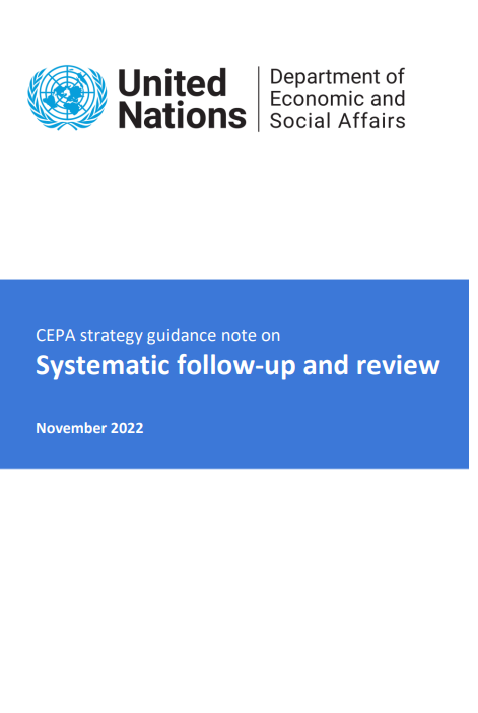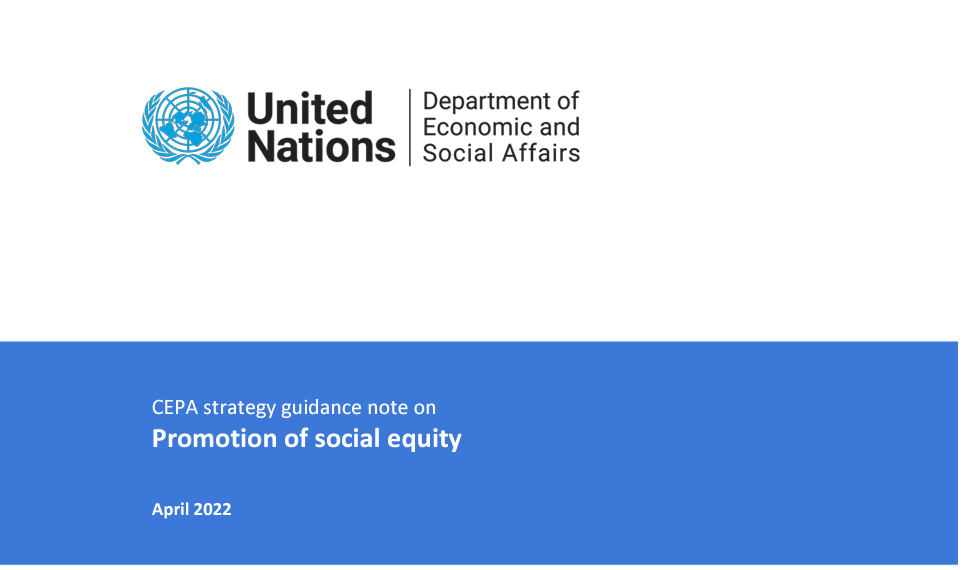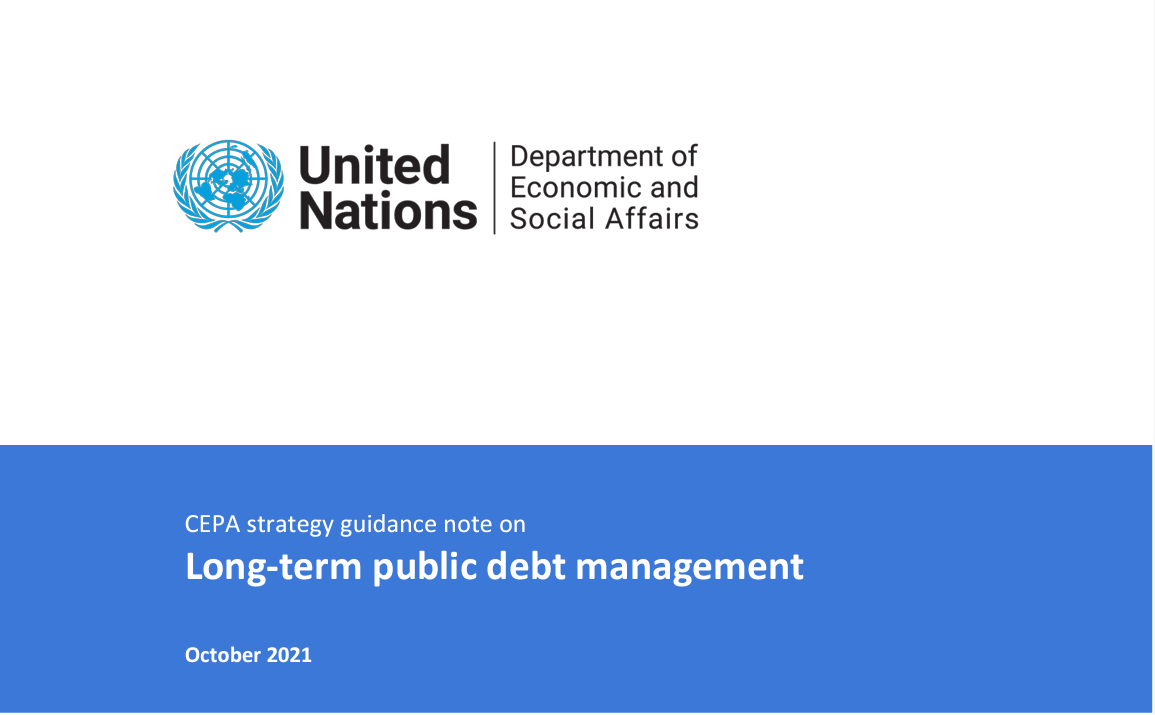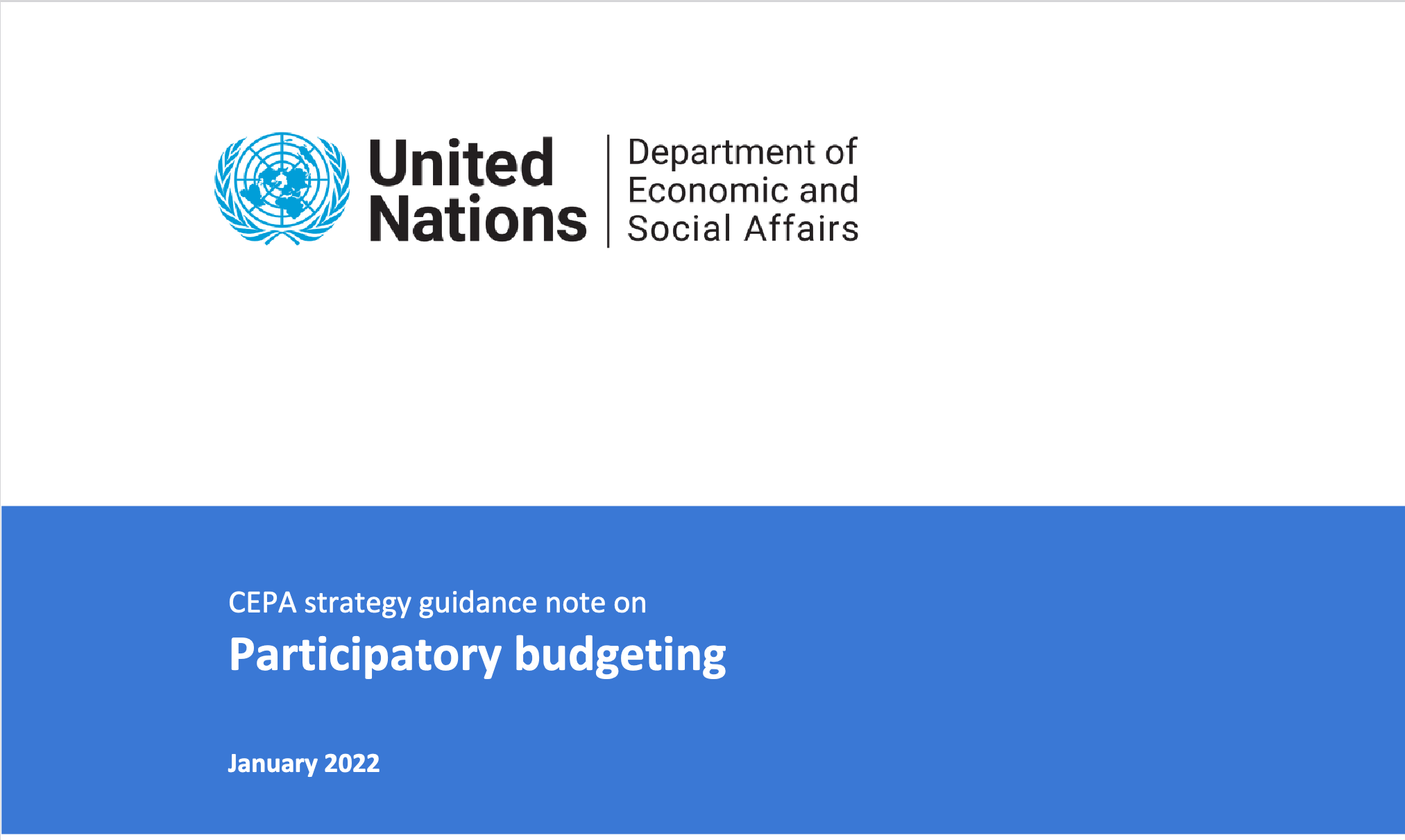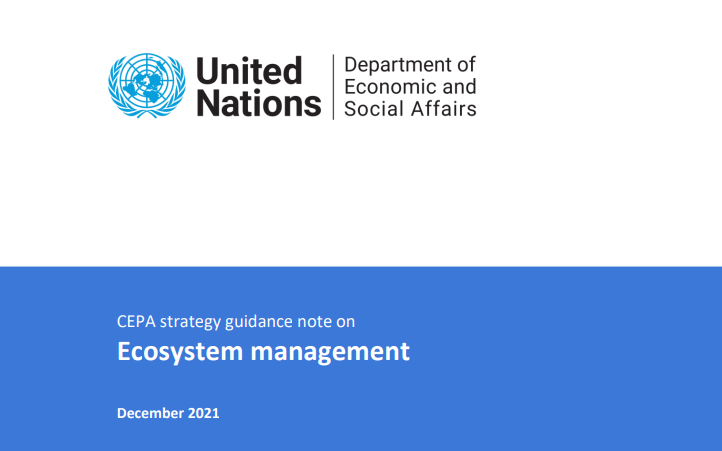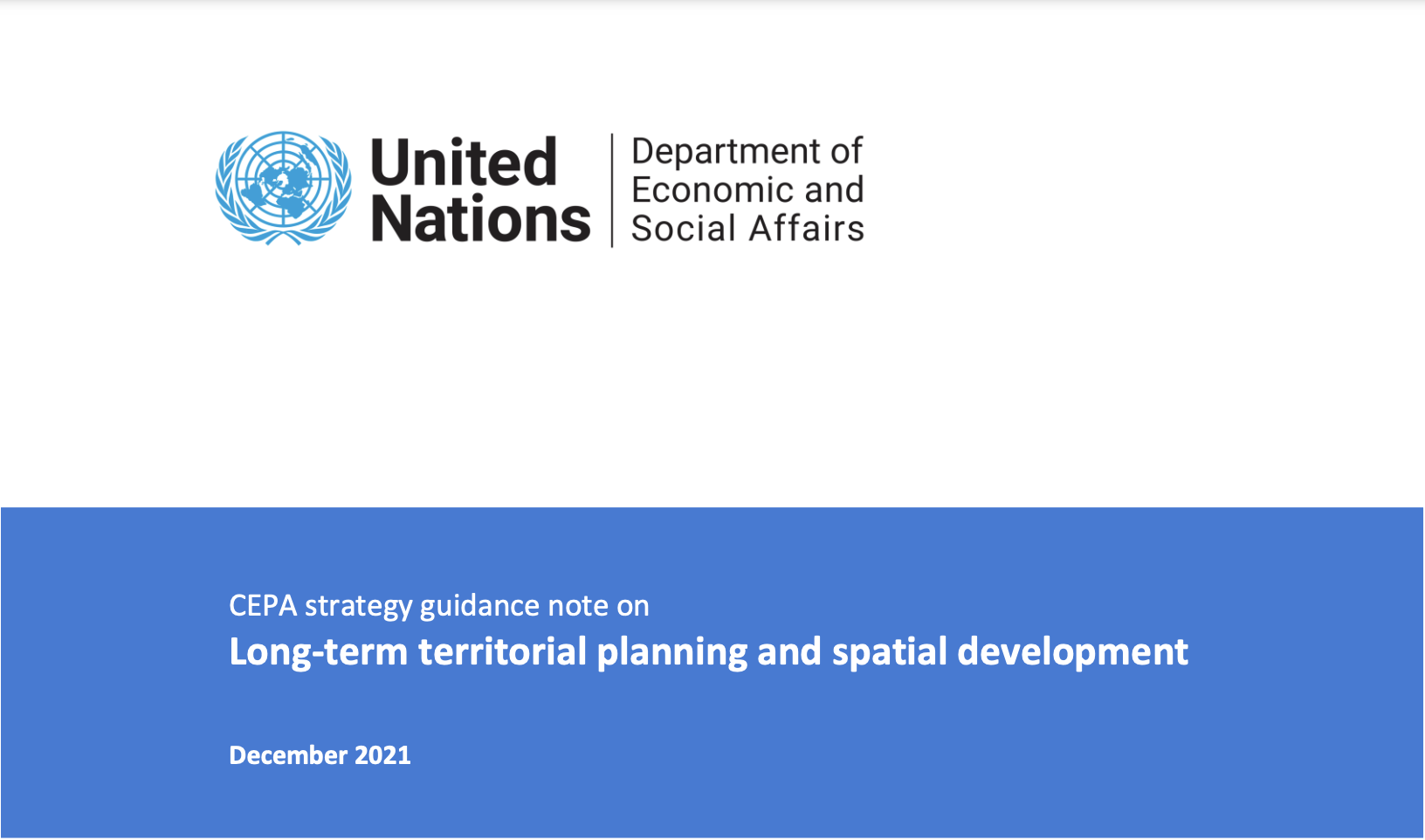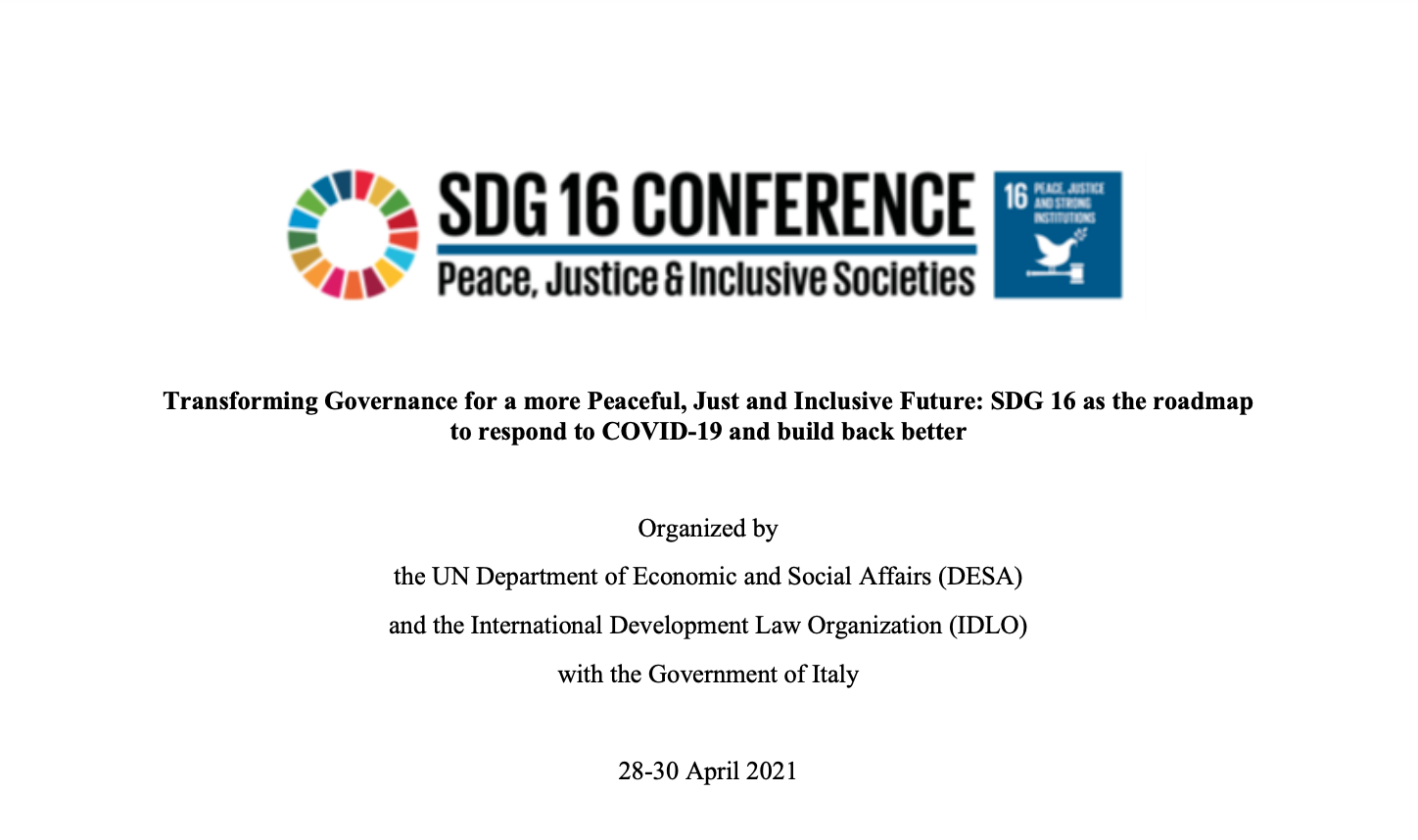| SDG 16 Conference Reports | Public Institutions
SDG 16 Conference Report 2023
The 2023 SDG 16 Conference addressed the role of SDG 16 in navigating the intersecting crises the world is facing. The Conference reviewed the progress and challenges related to SDG 16, focusing on conflict, and shrinking trust in public…
| CEPA Strategy Guidance Notes | Principles of Effective Governance
CEPA strategy guidance note on systematic follow-up and review
UN DESA's work is supported by a growing series of strategy guidance notes on the many facets of effective governance for sustainable development which embody the knowledge and experience of hundreds of committed expert practitioners and academics…
| SDG 16 Conference Reports | Public Institutions
SDG 16 Conference 2022 Report
The report of the 2022 SDG 16 Conference on people-centred governance in a post-pandemic world is now available. The Conference, co-organized by UN DESA, the International Development Law Organization and the Government of Italy and held in April…
| CEPA Strategy Guidance Notes | Principles of Effective Governance
CEPA strategy guidance note on promotion of social equity
The promotion of social equity is one of the strategies for leaving no one behind, and can be understood as fairness, justice and greater equality for all in society. Achieving equity relies on an active commitment to these aims through the…
| CEPA Strategy Guidance Notes | Principles of Effective Governance
CEPA strategy guidance note on long-term public debt management
This guidance note discusses the role of long-term public debt management as a strategy to promote sustainable development and intergenerational equity within the context of the 2030 Agenda.
| CEPA Strategy Guidance Notes | Principles of Effective Governance
CEPA strategy guidance note on participatory budgeting
Participatory budgeting (PB) broadly refers to the many ways in which the general public is able to interact directly with government in the design and implementation of budgetary and…
| CEPA Strategy Guidance Notes | Principles of Effective Governance
CEPA strategy guidance note on ecosystem management
Ecosystem management involves using ecological knowledge about a particular ecosystem’s structure and function to achieve a desired set of objectives. By setting and working toward appropriate objectives that are grounded in sustainability,…
| CEPA Strategy Guidance Notes | Principles of Effective Governance
CEPA strategy guidance note on long-term territotial planning and spatial development
In reading this guidance note, individuals in government ministries and agencies who are less familiar with the topic will be able to understand the fundamentals. Those who have perhaps taken initial steps in this area with limited follow-through or…
| CEPA Strategy Guidance Notes | Principles of Effective Governance
CEPA strategy guidance note on fiscal and budget transparency
Fiscal transparency provides oversight institutions including parliaments, supreme audit institutions, and the public with the information they need to hold governments accountable in their management and use of public resources.
| CEPA Strategy Guidance Notes | Principles of Effective Governance
CEPA strategy guidance note on impact assessment for sustainable development
Impact assessment is a structured process for considering the implications of proposed actions for people, communities and the environment, while there is still an opportunity to improve (or, if appropriate, abandon) the proposals.
| SDG 16 Conference Reports | Public Institutions
Report of the SDG 16 Conference
The 2021 global SDG 16 Conference – Transforming Governance for a more Peaceful, Just and Inclusive Future: SDG 16 as the roadmap to respond to COVID-19 and build back better – came to a successful conclusion on Friday, 30 April 2021, following six…
| CEPA Strategy Guidance Notes | Principles of Effective Governance
CEPA strategy guidance note on science-policy interface
The United Nations Committee of Experts on Public Administration (CEPA) has developed a set of principles of effective governance for sustainable development. The essential purpose of these voluntary principles is to provide interested countries…
 Welcome to the United Nations
Welcome to the United Nations
